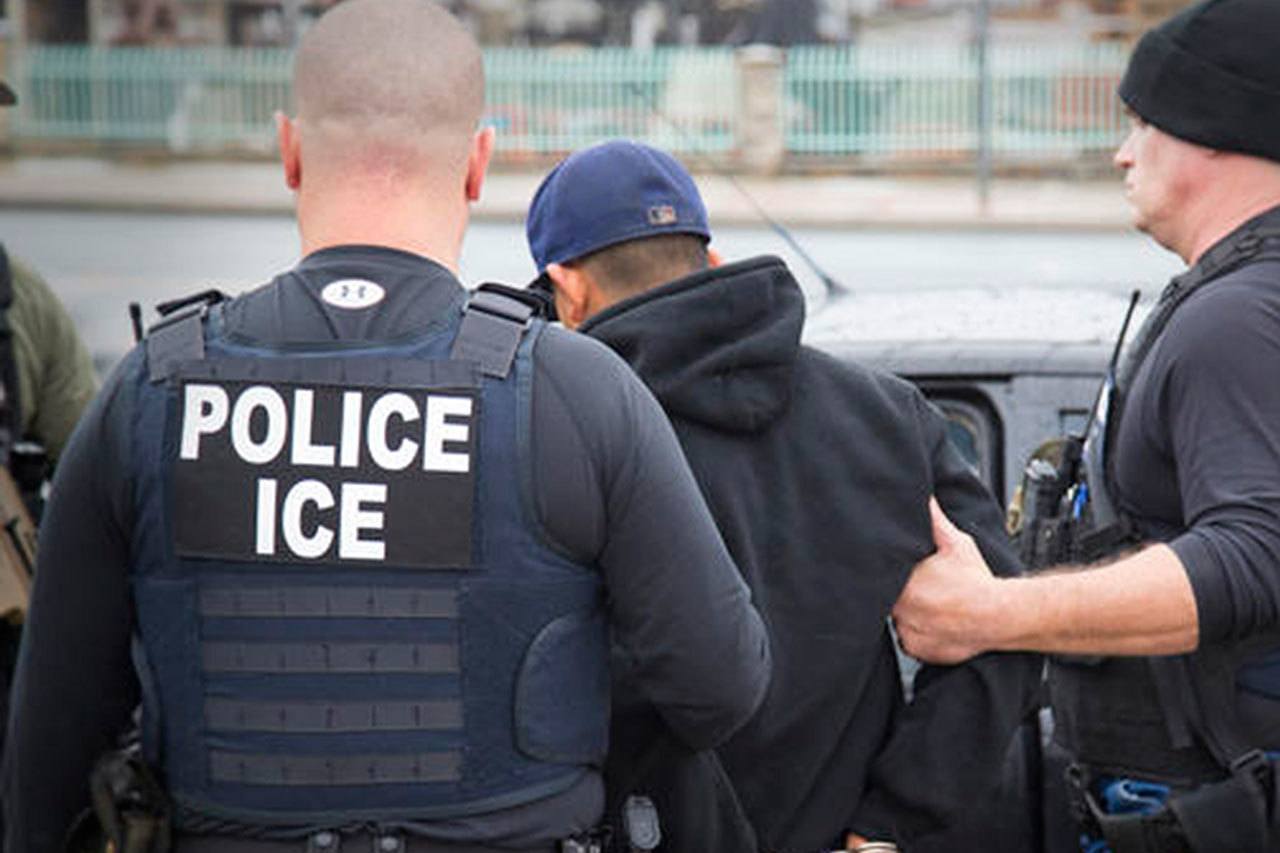On Monday, the Department of Homeland Security (DHS) released its first public “shame” list: A weekly roundup of jurisdictions across the country that have refused to turn over undocumented immigrants accused of crimes to Immigration and Customs Enforcement (ICE). As expected, King County is well represented there, along with approximately nine other Washington counties with policies in place that effectively ignore these requests.
President Donald Trump’s January 25 executive order — the one that called for building a wall along the Mexico border and defunding sanctuary cities like Seattle — directed DHS to create and publish what it called a “comprehensive list of criminal actions committed by aliens” every week, using information obtained by ICE. Monday’s release makes good on that directive, detailing 206 ICE requests that the above jurisdictions declined to honor between January 28 and February 3, including 12 in Snohomish County and three in King County.
Some call this “a PR move”; others call it fear-mongering. If there are lists coming out every week detailing which cities and counties are refusing to cooperate with federal authorities, and what crimes these individuals are accused of, it underscores Trump’s campaign narrative that immigrants commit crimes — and that a stronger ICE system makes for safer communities.
King County will have none of that.
While these are clearly “shaming tactics” on the part of the federal government, says King County Council Chair Joe McDermott, being on the list only gives us “an opportunity to speak out about our values.”
So, ashamed? Nah. More like “buoyed and encouraged,” he says.
A quick recap: When someone is arrested and fingerprinted, their information gets put into a national FBI database, and then automatically entered into an ICE database. If ICE has someone on its deportation list, the agency will issue a so-called “detainer request” to the jurisdiction that is holding the person, asking it to hold them for a few more days until ICE can come and pick them up (and, most likely, deport them). But King County passed an ordinance in 2013 — updated in 2016 — that directs county jails to only cooperate if the detainer request is accompanied by a warrant signed by a federal judge or magistrate. And because ICE has thus far never provided such documentation to the County, McDermott says, “in practice, we’re honoring no ICE detainers today.”
The main reason for the policy, according to McDermott, is public safety. Fear of deportation could discourage local residents from speaking to the police, which harms communities. “We want people to be working with law enforcement,” he says. “ICE detainers thwart that.” The requests have also been found to violate the Fourth Amendment of the U.S. Constitution; “it’s dubious how legal they are” in the first place, he adds.
“Clearly, these reports are designed to shame cities like Seattle and counties like King County into [cooperating with Trump’s] anti-immigrant policies,” says Seattle City Councilmember M. Lorena González, sponsor of Seattle’s “Welcoming City” resolution, passed unanimously on January 30. “As an elected official who comes from an immigrant family from Mexico, I categorically reject his attempt to create an analogy that all immigrants who end up in the criminal justice system, or immigrants, period, are criminals. And that immigrants are inherently a public safety risk is a principle that I reject… I think the King County detainer policy is a sound decision to protect the due process rights of immigrants and refugees.”
So… yeah. It doesn’t seem like this “shaming” will work out all that well for the feds. Rather, it seems to be having the opposite effect.
McDermott, for one, says the list simply “underscores the need to be responsible to immigrants and refugees in our community.” He’s sponsoring legislation, to be heard in committee on Wednesday, called “the resilience fund,” a proposal he’s been working on since the issuance of the first travel ban in late January. It would create hundreds of thousands of dollars of funding to protect immigrant and refugee communities — “Know Your Rights” trainings or support for local nonprofits, say — made possible through a public-private partnership between King County, the Seattle Foundation, and other individual donors and private foundations. “I’m not aware of another one like it in the country,” he says. He hopes to get it approved by the entire King County Council within a few weeks. And he hopes that it can be expanded, over time, to include other marginalized groups.
The only significant impact this weekly shaming might have is on places like Travis County, Texas (home to bright-blue Austin), which, according to Monday’s list, didn’t comply with 142 of the 206 detainer requests. That drew the ire of Texas governor Greg Abott, who said in a statement that “Today’s report from DHS is deeply disturbing and highlights the urgent need for a statewide sanctuary city ban in Texas.”
That kind of statewide legislation hardly seems possible here, though. “You heard Governor Inslee” speak out after the first travel ban, McDermott says. “How affirming and welcoming he wanted our state to be. We’re certainly not going to have legislation like that in Washington state.”








